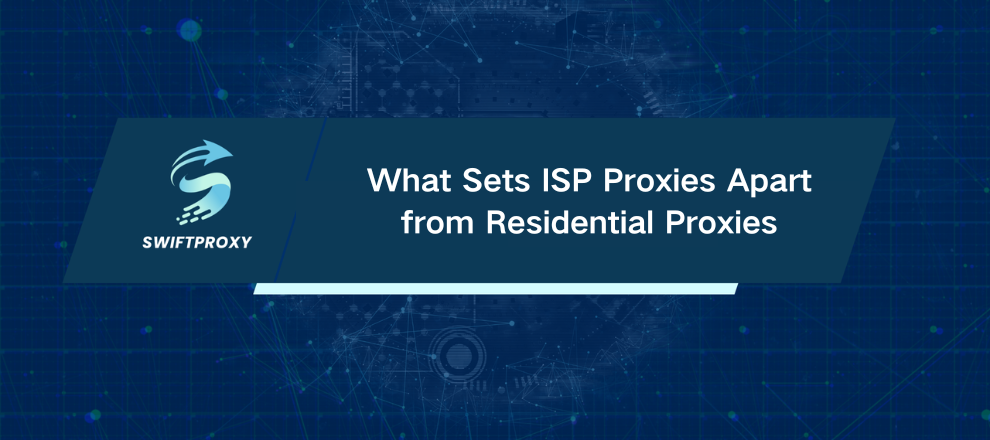What Sets ISP Proxies Apart from Residential Proxies

Traffic that looks real. Human-like. Organic. It's not just nice to have — it's important. Especially when you're juggling account management, automation, or complex web tasks. ISP proxies and residential proxies both promise this magic. However, you can't just grab and go. You need to know exactly what you're getting, when to use which, and how to get the most out of them.
Understanding ISP Proxies
Think of ISP proxies as a hybrid beast. They combine the speed and reliability of datacenter proxies with the trusted appearance of residential IPs. How? These proxies are hosted on servers — just like datacenter proxies — but their IP addresses come straight from internet service providers like Spectrum or British Telecom.
The result? Sites see these IPs as genuine residential users, making ISP proxies far less likely to get flagged or blocked. Plus, since they're powered by data centers, you get blazing speeds and rock-solid stability.
Understanding Residential Proxies
Residential proxies come from real devices owned by real users who’ve consented to share their IPs. This makes them incredibly hard to detect. When you connect through a residential proxy, it looks like you're just another person browsing from home.
But these IPs rotate frequently and can be less stable. Your connection speed might vary depending on the original user's internet quality.
ISP Proxies vs. Residential Proxies
Websites treat both ISP and residential proxies like authentic traffic. But under the hood, they're very different. Residential IPs belong to actual users. ISP proxies, while recognized as residential by sites, are artificial — hosted in data centers.
Sometimes you'll hear ISP proxies called "static residential proxies." That's because they offer a stable IP that doesn't rotate, combining the anonymity of residential proxies with the consistency of datacenter connections.
The Strengths and Weaknesses of ISP Proxies
Advantages:
Fast and reliable: Hosted in data centers with high bandwidth, these proxies deliver superior speed and uptime.
Low blocking risk: Registered with ISPs, they appear as genuine residential traffic, so websites are less suspicious.
Stable sessions: Perfect for tasks needing long, uninterrupted connections.
Disadvantages:
Low subnet diversity: IPs come in clusters. If one IP gets blocked, others in the same range are at risk too.
The Strengths and Weaknesses of Residential Proxies
Advantages:
Almost invisible: Because IPs come from real users, detection is tough for websites.
Massive global pool: You get access to IPs worldwide, with precise location targeting.
High IP diversity: If one IP is blocked, others remain safe due to broad distribution.
Disadvantages:
Variable speed and reliability: Performance depends on the user's internet connection, which can fluctuate.
When to Use Which
Both proxy types can handle web scraping, but with nuances:
Use residential proxies to slip past tough anti-bot systems.
Use ISP proxies for sites that need a steady, unchanging IP.
For example, ISP proxies excel at:
Account management
SEO monitoring
Multi-login setups
Residential proxies shine in:
Review monitoring
Travel fare aggregation
Ad verification
Quick Comparison Table
|
Feature |
Residential Proxies |
ISP Proxies |
|
Speed |
Medium |
High |
|
Source |
Real user devices |
Data centers |
|
Anonymity |
High |
Medium |
|
Stability |
Low to medium |
High |
|
Bandwidth |
Lower |
Higher, often unlimited |
|
Geo-targeting |
Extensive worldwide options |
Usually region-specific |
|
Cost |
Variable, often cheaper |
Usually pricier |
|
IP Rotation |
Automatic, large pool |
Manual, smaller pool |
|
Detection risk |
Very low |
Low |
Final Thoughts
Choosing between ISP and residential proxies isn't a matter of which one is superior — it's about matching the right tool to the job. If your priority is speed and stable sessions, ISP proxies are the way to go. If you need high anonymity and broad geographic coverage, residential proxies are the better fit.

















































